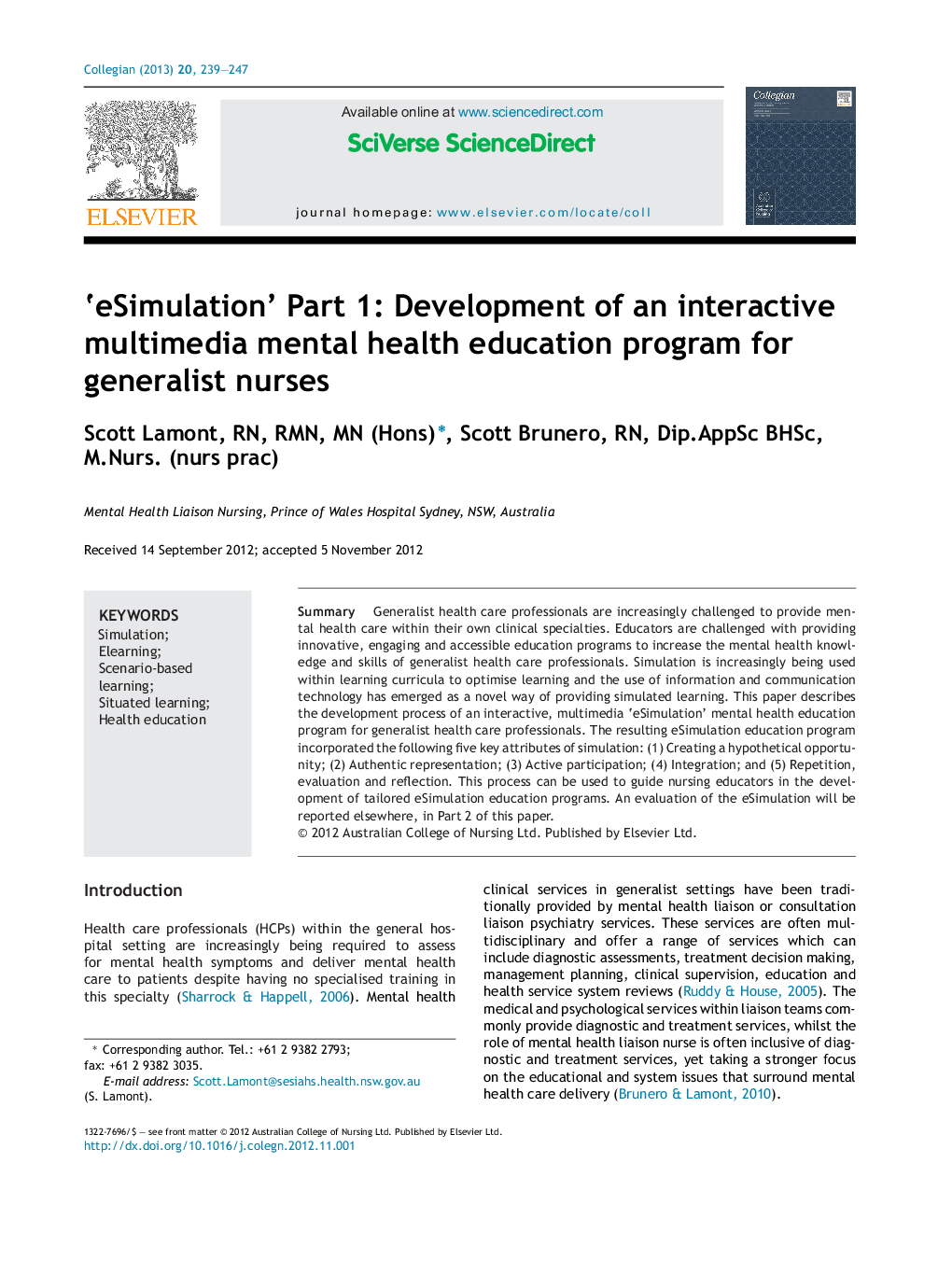| Article ID | Journal | Published Year | Pages | File Type |
|---|---|---|---|---|
| 2646382 | Collegian | 2013 | 9 Pages |
SummaryGeneralist health care professionals are increasingly challenged to provide mental health care within their own clinical specialties. Educators are challenged with providing innovative, engaging and accessible education programs to increase the mental health knowledge and skills of generalist health care professionals. Simulation is increasingly being used within learning curricula to optimise learning and the use of information and communication technology has emerged as a novel way of providing simulated learning. This paper describes the development process of an interactive, multimedia ‘eSimulation’ mental health education program for generalist health care professionals. The resulting eSimulation education program incorporated the following five key attributes of simulation: (1) Creating a hypothetical opportunity; (2) Authentic representation; (3) Active participation; (4) Integration; and (5) Repetition, evaluation and reflection. This process can be used to guide nursing educators in the development of tailored eSimulation education programs. An evaluation of the eSimulation will be reported elsewhere, in Part 2 of this paper.
